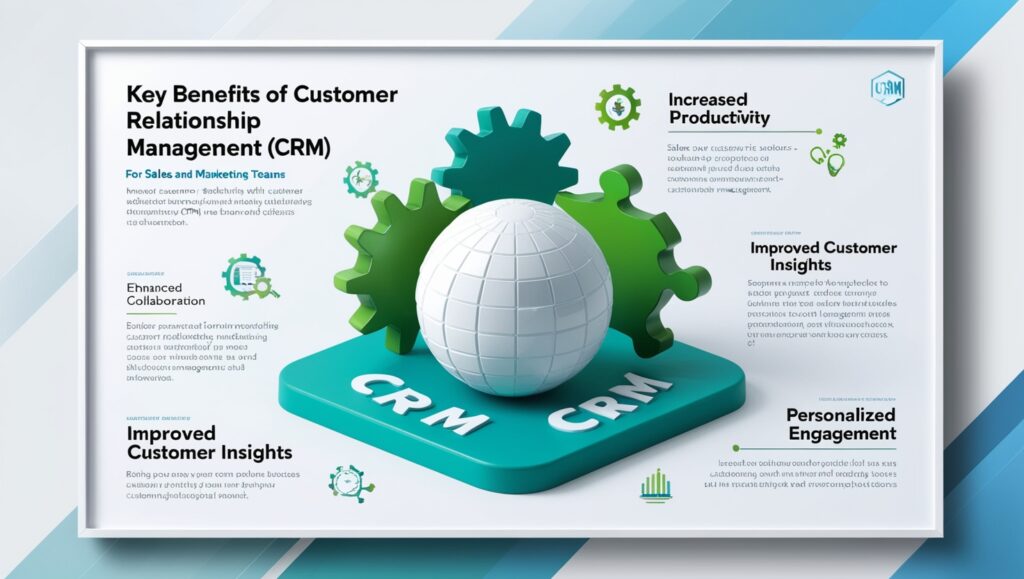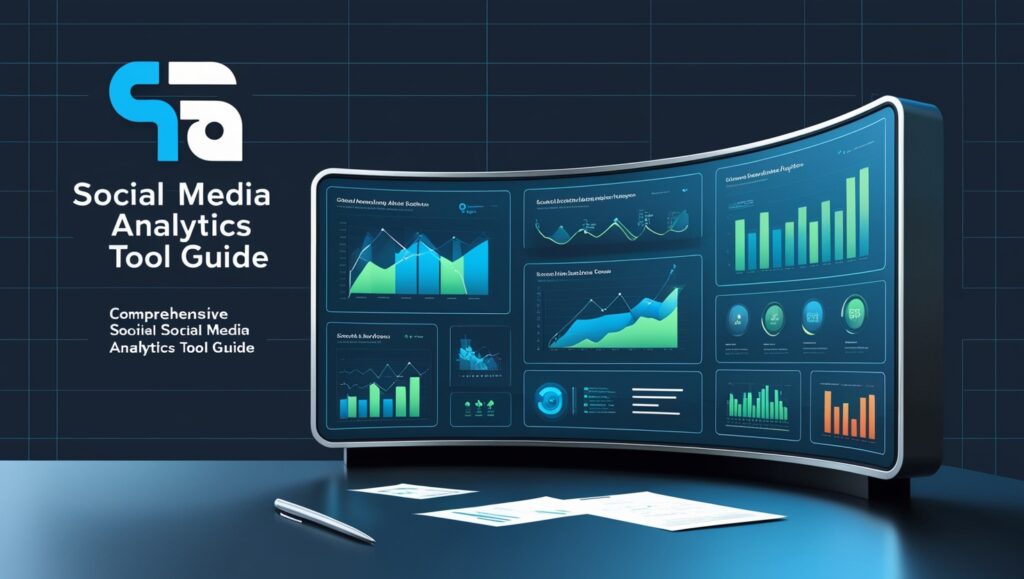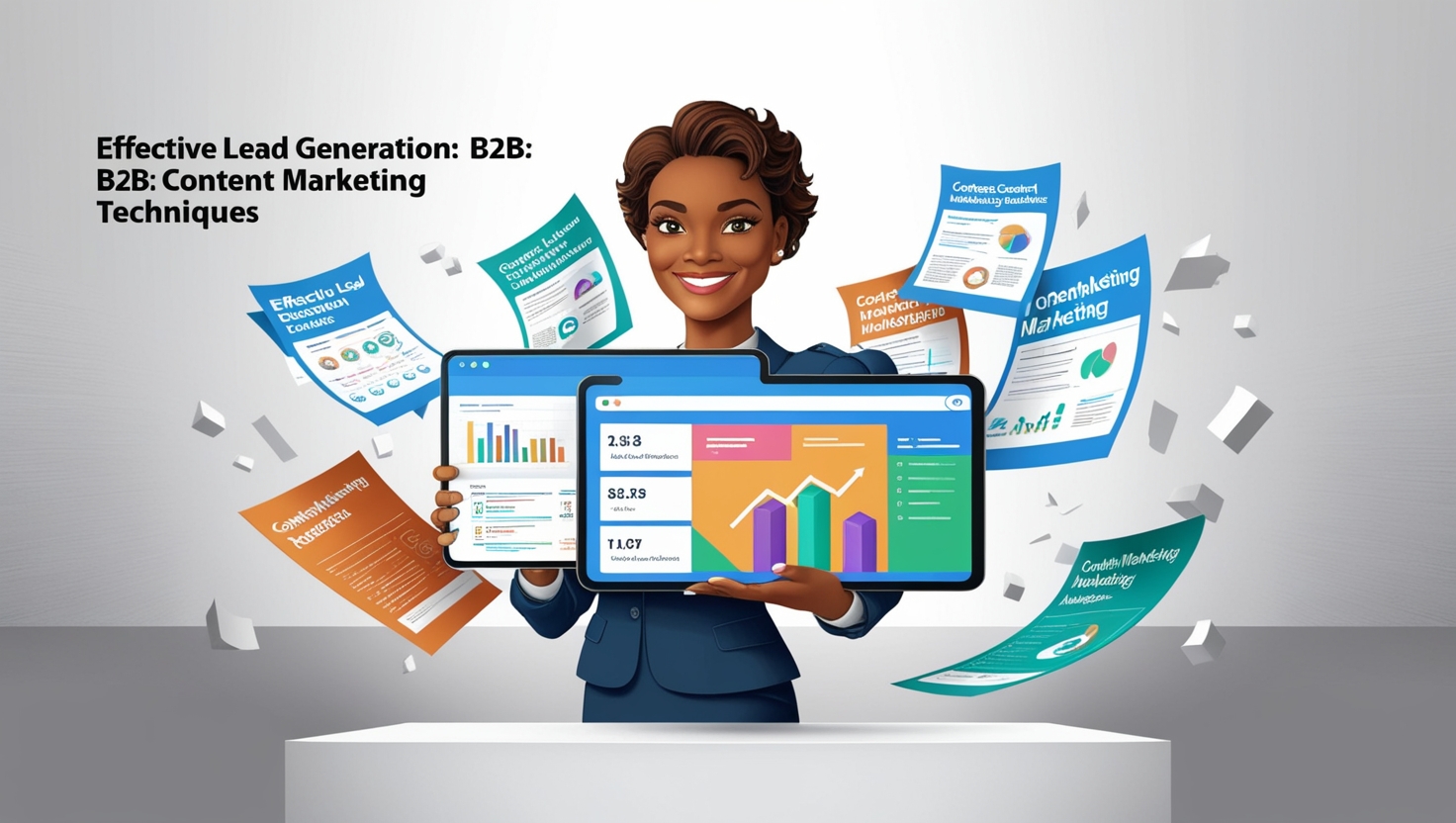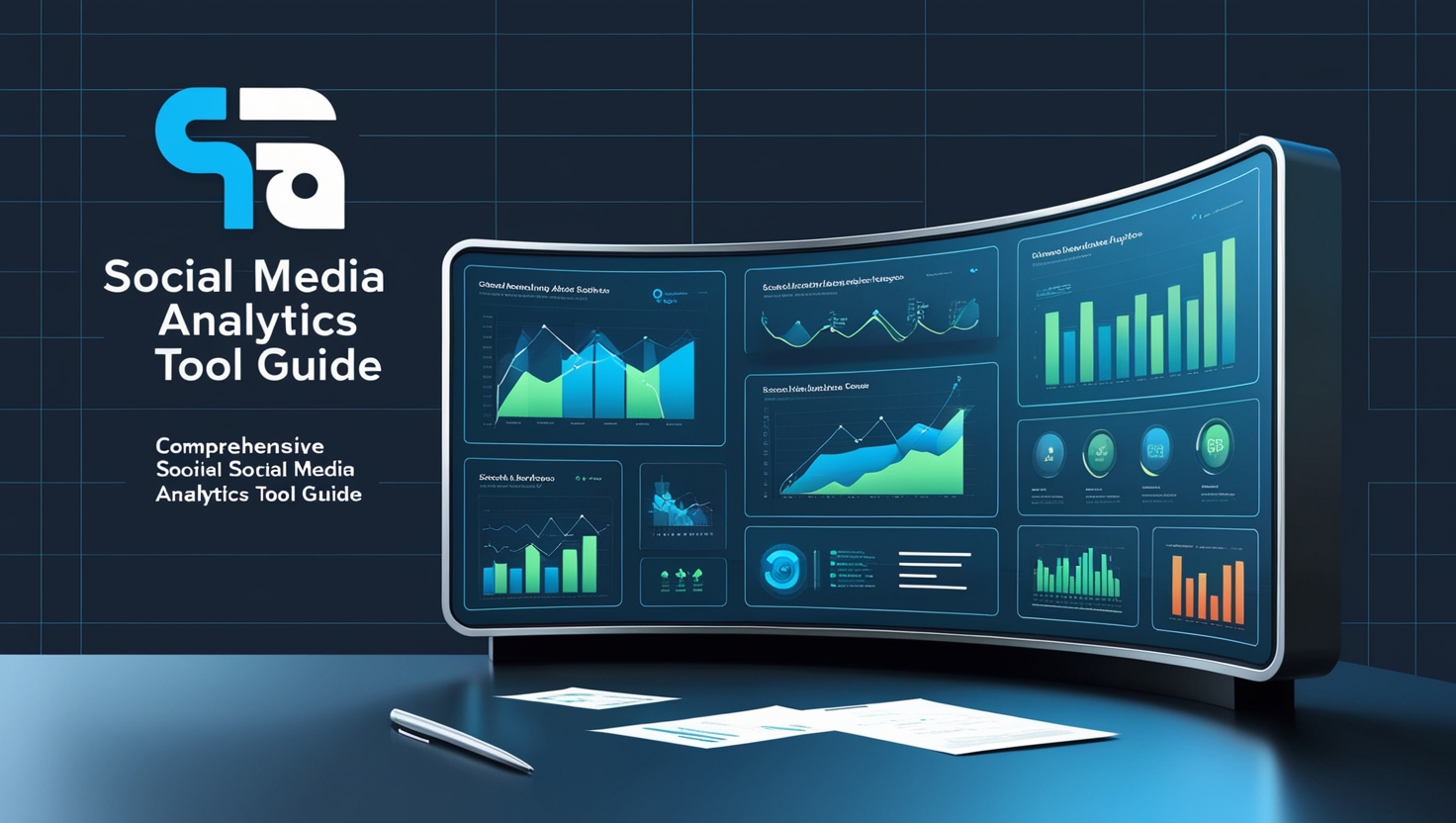Importance of CRM in Business Growth cannot be overstated in today’s competitive market, where customer relationships drive success. Customer Relationship Management (CRM) systems empower businesses to streamline processes, improve customer interactions, and gain actionable insights into consumer behavior. By centralizing customer data, businesses can offer personalized experiences, enhance customer satisfaction, and build long-term loyalty. A well-implemented CRM strategy not only improves operational efficiency but also plays a pivotal role in driving sales and fostering sustainable growth. As businesses scale, the importance of CRM in business growth becomes even more apparent, helping companies stay organized, proactive, and aligned with evolving customer needs.
Customer Relationship Management (CRM) systems are essential tools for small businesses seeking growth. The Importance of CRM in Business Growth lies in its ability to streamline operations, enhance customer relations, and provide valuable insights. By leveraging CRM software, companies can improve customer service, boost loyalty, and tailor strategies, driving sustainable business success.
The Importance of CRM in Business Growth

In today’s competitive business landscape, Customer Relationship Management (CRM) has become an indispensable tool for companies aiming to achieve sustainable growth. A well-implemented CRM strategy can significantly impact various aspects of a business, from improving customer satisfaction to boosting sales and streamlining operations. The Importance of CRM in Business Growth lies in its ability to foster stronger customer relationships, enhance productivity, and drive long-term success. Let’s explore why CRM is crucial for business growth and how it can benefit your organization.
What is a CRM System and How Does It Benefit Small Businesses?
A CRM system is a powerful tool that helps businesses manage their interactions with customers and prospects. By utilizing crm data, small businesses can gain valuable insights into customer behavior, which allows them to tailor their services effectively. CRM can help improve customer service by providing a better customer experience and enabling sales and marketing teams to collaborate seamlessly. The value of a CRM system lies in its ability to streamline operations and enhance revenue growth.
For a growing business, using the best CRM can significantly impact success. Integrating a CRM into your management and business processes allows you to analyze all of your sales data efficiently. Additionally, crm for small businesses offers tools that can show trends and opportunities in the market. Whether you choose another CRM or a modern CRM, the benefits are clear. CRM can improve not only customer relationships but also overall operational efficiency, making it an essential business software for any small enterprise.
Understanding the Importance of CRM in Business Growth
To achieve sustainable growth, businesses must use the CRM effectively. CRMs help streamline customer interactions, making it easier to track and manage relationships. When companies use your CRM efficiently, they can gain valuable insights into customer behavior. A well-implemented CRM system can help align CRM and marketing strategies, enhancing overall effectiveness.
Furthermore, a robust CRM can show trends and opportunities that may otherwise go unnoticed. By leveraging CRM to improve sales processes, businesses can maximize their potential. Ultimately, those who benefit from CRM tools are more likely to experience success, leading to a successful CRM implementation that drives growth.
How CRM Software Enhances Customer Relationships

CRM software enhances customer relationships by providing businesses with valuable insights into customer behavior and preferences. This allows for personalized communication, fostering stronger connections.
Additionally, CRM systems streamline interactions, ensuring timely responses and efficient service. This leads to increased customer satisfaction and loyalty, ultimately driving long-term success.
Key Features of a CRM Solution for Small Businesses
Contact Management: allows small businesses to organize customer information efficiently, ensuring easy access to vital data.
Sales Tracking: features help monitor leads and sales performance, enabling better decision-making and forecasting.
Automation Tools: streamline repetitive tasks, saving time and improving productivity for small teams.
Reporting and Analytics: provide insights into customer behavior, helping businesses tailor their strategies effectively.
How Can CRM Software Improve Customer Satisfaction?
CRM software enhances customer satisfaction by providing personalized experiences. By tracking customer interactions and preferences, businesses can tailor their services to meet individual needs.
Additionally, CRM systems streamline communication, ensuring timely responses to inquiries and issues. This responsiveness fosters trust and loyalty among customers.
Finally, data analytics within CRM tools help identify trends, allowing companies to proactively address potential concerns and improve overall service quality.
Customer Relationship Management (CRM) systems play a crucial role in enhancing customer experience. By leveraging data analytics, businesses can personalize interactions, ensuring tailored communications that resonate with individual needs.
Additionally, integrating multi-channel support allows for seamless engagement, while automated follow-ups foster stronger relationships, ultimately leading to increased customer satisfaction and loyalty
Measuring Customer Satisfaction with CRM Tools
Measuring customer satisfaction is essential for businesses to thrive. Utilizing CRM tools allows companies to gather feedback effectively. These tools enable the tracking of customer interactions, helping to identify areas for improvement.
By analyzing data, businesses can enhance their services, ensuring a better customer experience. Ultimately, CRM systems foster stronger relationships and loyalty
Benefits of CRM Systems for Customer Retention
CRM systems enhance customer retention by providing personalized experiences, allowing businesses to tailor their interactions based on individual preferences.
They enable effective communication, ensuring customers feel valued and understood.
Additionally, CRM analytics help identify trends and behaviors, allowing companies to anticipate needs and proactively address concerns.
Ultimately, these systems foster long-term relationships, driving loyalty and repeat business.
What Are the Key Benefits of CRM for Sales and Marketing?

- CRM systems enhance sales and marketing efforts by centralizing customer data, allowing teams to better understand client needs and preferences.
- They facilitate improved communication across departments, ensuring that all team members are aligned with current strategies and customer interactions.
- Moreover, CRM tools enable effective lead management, helping businesses track potential customers and convert them into loyal clients.
- Ultimately, these systems drive efficiency and boost revenue by optimizing marketing campaigns and enhancing customer relationships.
How CRM Helps Streamline the Sales Process
CRM systems enhance efficiency by centralizing customer information, enabling sales teams to access vital data quickly. This streamlined access reduces time spent searching for details, allowing representatives to focus on building relationships.
Additionally, CRM tools automate routine tasks, such as follow-ups and reporting, which further accelerates the sales process and increases productivity.
By providing insights into customer behavior, CRM also helps identify opportunities and tailor sales strategies effectively, ultimately driving higher conversion rates.
Integrating CRM with Marketing Campaigns
Integrating CRM with marketing campaigns enhances customer engagement by providing valuable insights. By leveraging customer data, businesses can tailor their messages and offers to meet specific needs.
This synergy fosters better targeting, resulting in improved conversion rates and higher customer satisfaction. Ultimately, a cohesive strategy drives both sales growth and brand loyalty.
Using CRM to Track Customer Interactions for Better Sales
Customer Relationship Management (CRM) systems are essential tools for tracking customer interactions. By consolidating data, businesses can analyze patterns and preferences, leading to improved sales strategies.
Utilizing CRM enables teams to personalize communication, enhancing customer engagement and fostering long-term relationships. This ultimately drives higher conversion rates and boosts overall revenue.
How Does a CRM System Help in Managing Customer Data?
A CRM system streamlines the management of customer data by centralizing information in one accessible platform. This allows businesses to easily track interactions, preferences, and purchase history.
Moreover, it enhances communication through automated follow-ups and personalized outreach, ultimately fostering stronger customer relationships
Importance of Customer Data in Business Decisions
Customer data plays a crucial role in shaping effective business decisions. By analyzing this data, companies can identify trends, preferences, and behaviors that inform product development and marketing strategies.
Moreover, leveraging customer insights enhances personalization, fostering stronger relationships and loyalty. Ultimately, informed decisions lead to improved customer satisfaction and increased profitability.
Organizing Customer Information for Enhanced Business Processes
Organizing customer information is crucial for enhancing business processes. By systematically categorizing data, companies can improve communication and streamline operations. This structured approach enables better customer insights, allowing businesses to tailor their offerings and improve customer satisfaction. Ultimately, effective organization leads to increased efficiency and profitability.
Using CRM to Analyze Customer Behavior and Preferences

Customer Relationship Management (CRM) systems play a crucial role in analyzing customer behavior and preferences. By collecting data from various touchpoints, businesses can identify trends and patterns that inform marketing strategies.
This analysis enables companies to tailor their offerings, enhancing customer satisfaction and loyalty. Ultimately, leveraging CRM insights leads to more effective engagement and improved business outcomes.
How Can CRM Systems Help Your Business Achieve Its Goals?
CRM systems streamline customer interactions, allowing businesses to manage relationships effectively. By centralizing data, they provide insights that help in identifying trends and improving customer satisfaction.
Additionally, CRM systems enhance collaboration among teams, ensuring that everyone is aligned with business objectives. This leads to increased productivity and better decision-making.
Ultimately, leveraging a CRM system can drive sales growth and improve customer retention, helping your business achieve its goals.
Aligning CRM Features with Business Goals
Aligning CRM features with business goals is crucial for maximizing efficiency. By integrating tools that support sales, marketing, and customer service, organizations can streamline processes.
Identifying key performance indicators ensures that the CRM system not only meets current needs but also adapts to future challenges.
Unlocking Growth Through Effective CRM Implementation
Unlocking growth through effective CRM implementation is essential for modern businesses. By leveraging customer data, organizations can enhance their relationships and tailor services to meet client needs. A well-integrated CRM system streamlines processes, boosts productivity, and ultimately drives revenue, ensuring sustained success in a competitive landscape.
Long-Term Benefits of Using CRM for Business Success
Customer Relationship Management (CRM) systems offer significant long-term benefits for businesses. By effectively managing customer interactions, companies can enhance customer satisfaction and loyalty, leading to repeat business.
Additionally, CRM tools provide valuable data insights that inform strategic decisions, helping to identify market trends and customer preferences.
Ultimately, a well-implemented CRM fosters stronger relationships and drives sustainable growth, positioning businesses for enduring success
Conclusion
In today’s competitive landscape, a CRM system is essential for sustainable growth. It’s not just a tool—it’s a strategic approach that requires company-wide commitment. By improving customer understanding, boosting efficiency, and enabling smarter decisions, CRM helps businesses build lasting relationships and grow. When implemented effectively, it becomes a powerful driver of success, allowing companies to stay ahead and thrive












